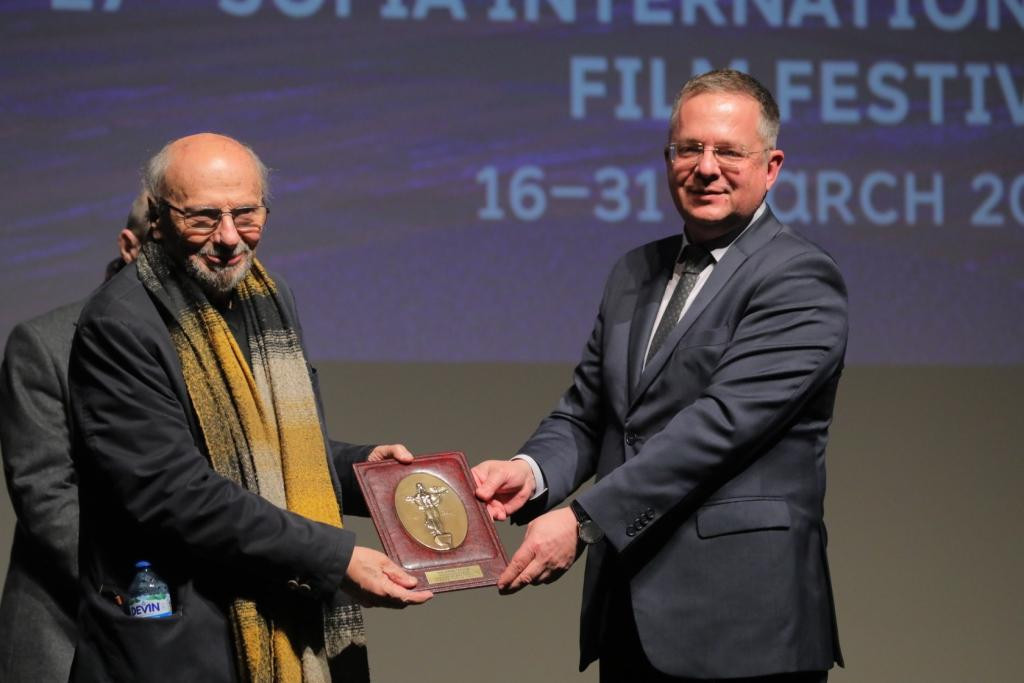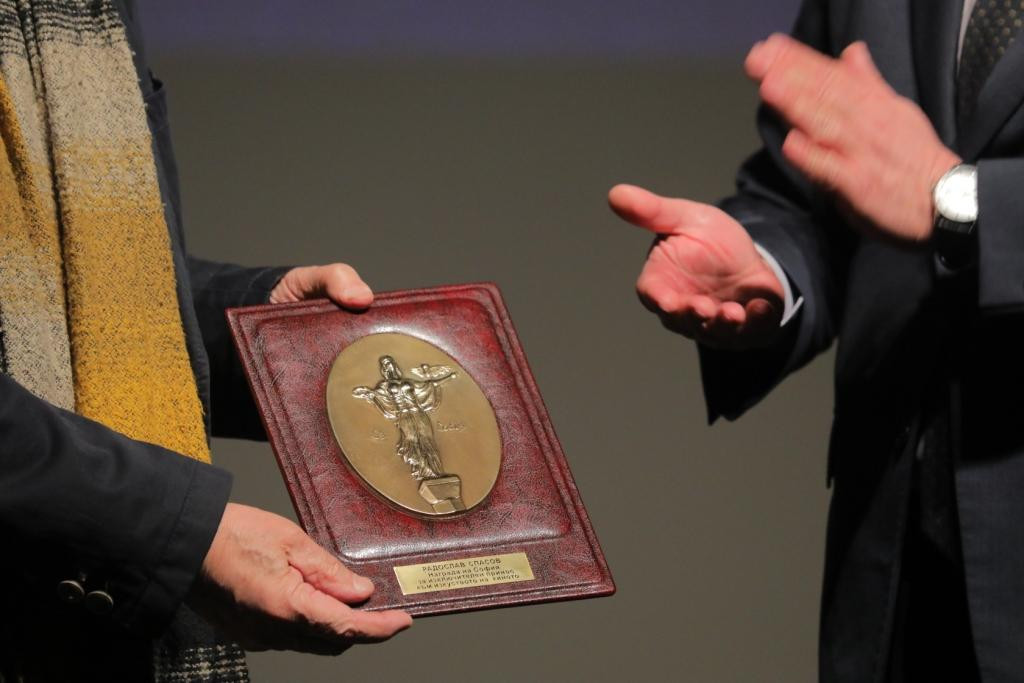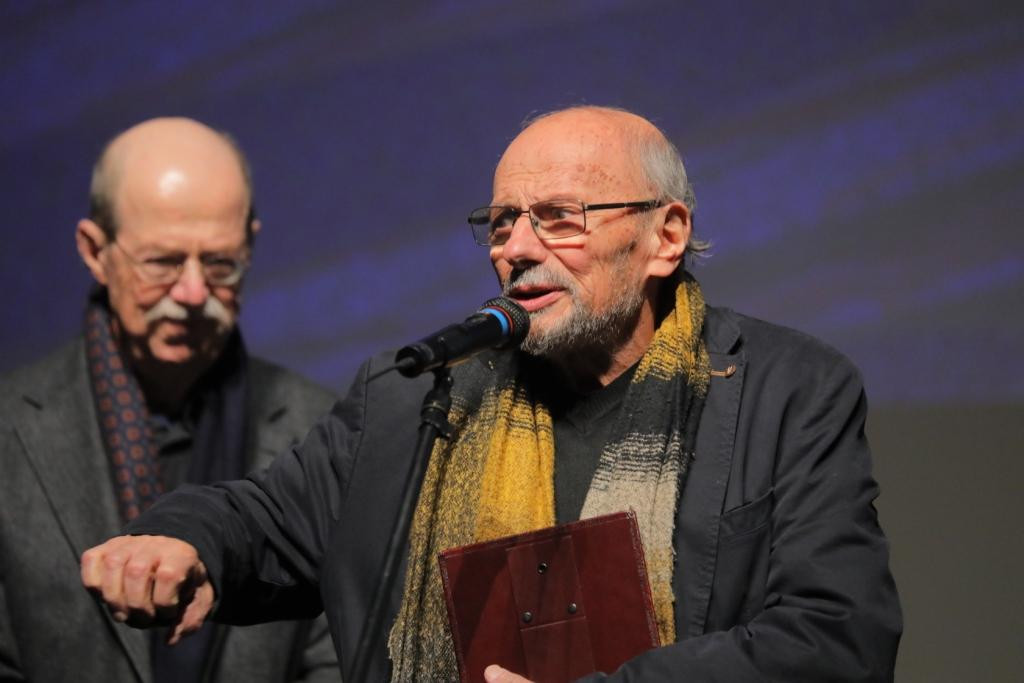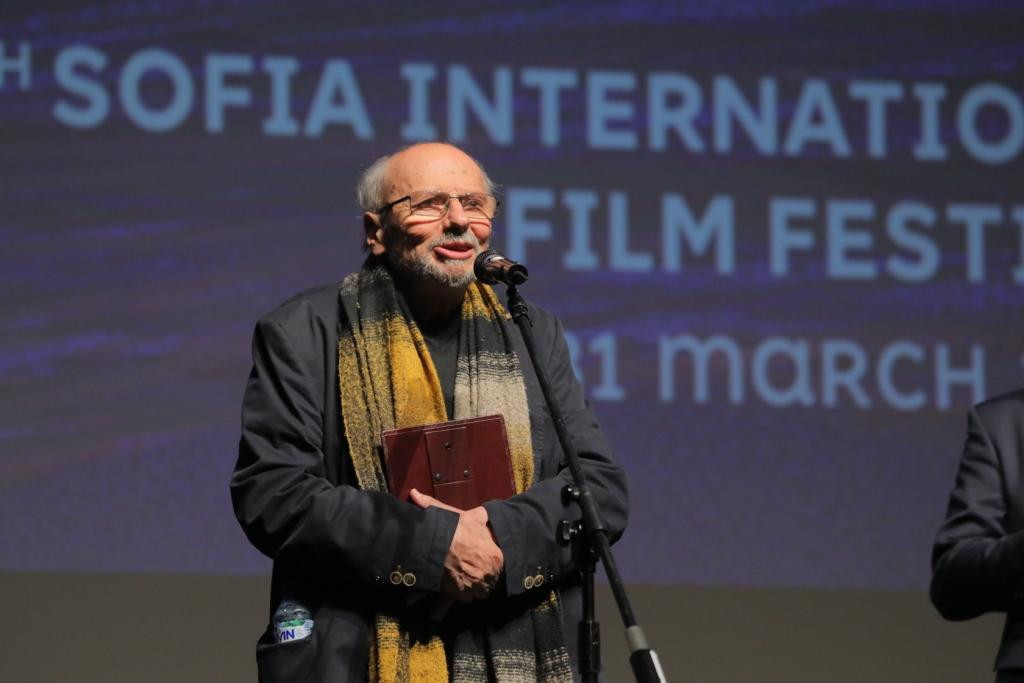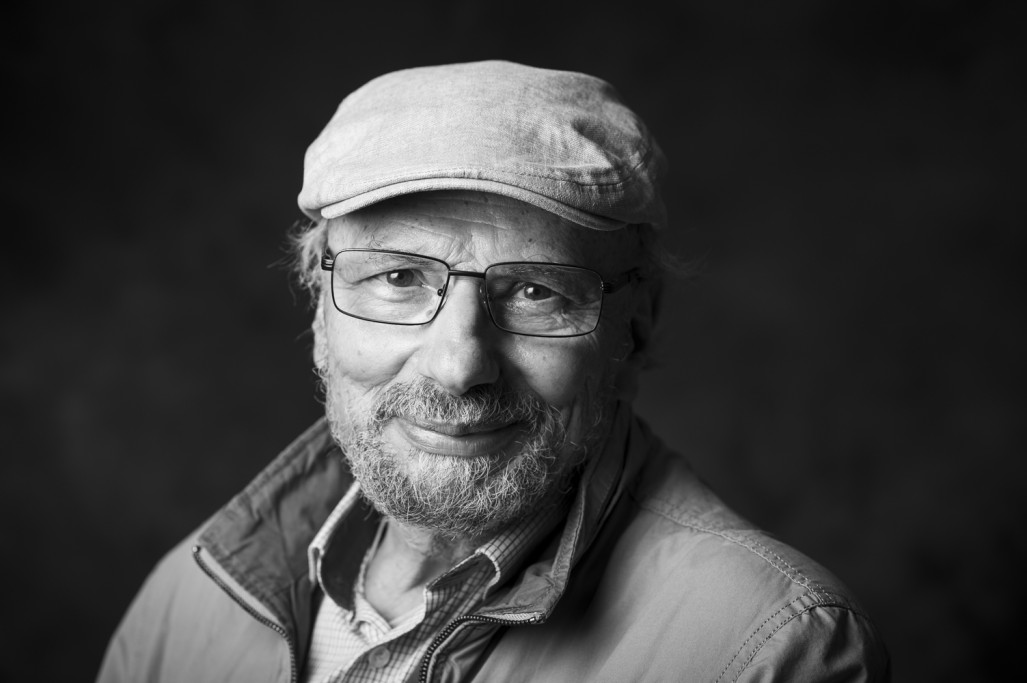Radoslav Spassov received SOFIA Municipality Award for his contribution to the world of cinema in 2023.
“The person who is very, very much involved in the films I have made is Slavcho, Radoslav Spassov - the cinematographer of most of them.
Slavcho doesn't like to discuss the image. He's interested in the dramaturgy, in the conflict between the characters. That's why he's invaluable during shoots. He knows the essence of each scene and penetrates the actors, follows them with his free eye from behind the viewfinder, and reacts spontaneously as soon as a sincere and unexpected reaction appears. Often turns the camera on an actor who is off the lens and not observing the pre-rehearsal. At first, I was annoyed at these arbitrary actions, but I was convinced that his spontaneous sensitivity was true when we watched the material afterward. It was no accident that all the important directors of our time sought him out and worked with him - they valued his complicity. He had worked with Rangel Valchanov, Eduard Zahariev, Georgi Stoyanov, Ivan Andonov, Lyudmil Staykov, Kiran Kolarov, Janusz Vazov, Nikolai Korabov, Krasimir Spasov, Nadejda Koseva, Milena Andonova...
Actors (especially actresses) loved him very much and entrusted him with their faces. They knew that he would make the most faithful portraits of them; portraits that would reveal their souls. Well, of course, the souls are also prepared by the director in advance, but if, in the brief moment when an unexpected, unforeseen, but sincere and necessary actor's reaction has spontaneously occurred, if at that moment the camera is “bleating” somewhere around the character's hands or feet, then both the director's and the actor's efforts have been in vain. This is why I don't trust camera crews in which the titular actor directs the lighting and behind the camera is the so-called “camera operator”. I remember that Wajda, at a meeting at the VGIK during our student years, made the audience laugh by saying that the cinematographer was responsible for the rhythm of the film. We, imbibers at the time of Eisenstein's theories on the editing of attractions, didn't get it. We said to ourselves: “It's getting forced!” It took me years to figure out that the cinematographer has to feel the rhythm of the film, especially if you're shooting long-form episodes with camera movement. The cinematographer then participates in what's called in-frame editing. God, how many soulless, though technically perfect panoramas with a hundred times specified focus points I have seen! The panorama is perfect, and the actors in it move like mannequins. Slavcho was willing to sacrifice technical perfection for sincere and genuine acting - a faithful disciple of Bate Dimo.
He has an innate, God-given, sense of composition. During the “The Exam” I was just peeking into the camera to check the composition. I didn't trust him. I had arrogantly decided that he didn't have enough visual culture. He hadn't been to many exhibitions, and I had spent something like a third of my student time at the Pushkin Museum of Fine Arts in Moscow. In Leningrad, I hung out in the Hermitage for days on end. I studied the compositions of the great masters and analyzed them. I especially delved into portraits. I discovered for myself - that eyes and lips are opposites. The eyes express the soul and the lips express the character. They conflict with each other and in the combination of this struggle great portraitists are evident.
Pumped up with such self-confidence, I argued with Slavcho quite a bit about how to compose the shots, until one day he resolved our disputes in a Solomonic fashion:
- Here's your camera! Compose your shot as you see fit! Shoot it! Then I'll shoot mine. And we'll see the result on the sheet!
Thank God, as we watched the two shots on the screen, I dared to admit my defeat... From then on, I stopped peeking into Slavcho's camera. In my last films, we came to silent gesticulation. I ask:
- What do you catch?
He shows the crudeness with his palms. And we work.”
Georgi Djulgerov
(from the book “Biography of My Films”)
Selected filmography:
2007 Which Way Today
2005 Lady Zee
1996 Black Swallow
1990 The Camp
1988 And Where Do We Go from Here?
1988 Time of Parting
1986 Where Are You Going?
1984 File 205/1913
1981 Measure for Measure
1979 The Unknown Soldier's Patent Leather Shoes 1977 Advantage
1977 Manly Times
1975 Villa Zone
1971 The Exam
As a Director:
2016 Singing Shoes
2005 Stolen Eyes
1993 A Day of Forgiveness



